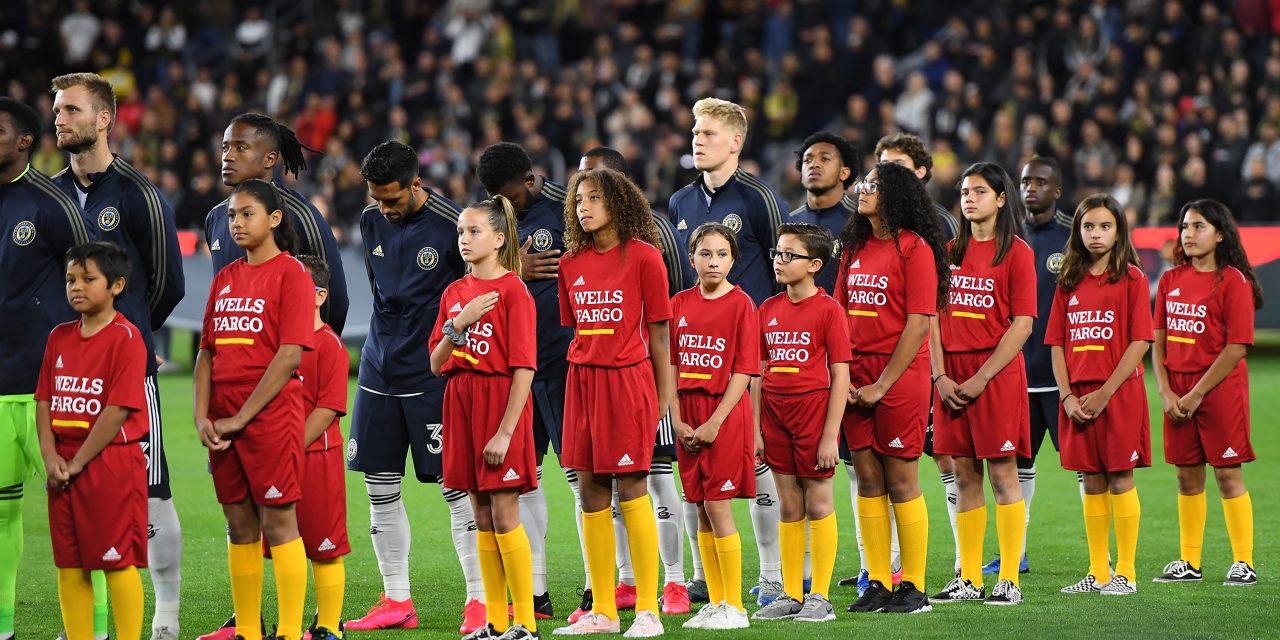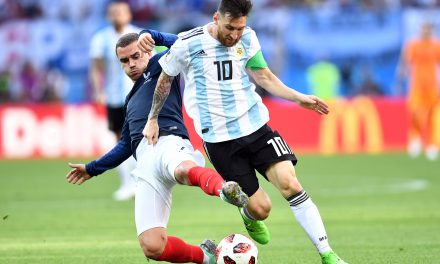Playing sports can be great for kids. Not only is the physical activity good for their health, they’ll learn teamwork and perseverance. It’s also a great way to make friends, and it can help them to feel like they belong, unlike their uninvolved peers.
That doesn’t mean everything about playing sports is good. Playing sports can be dangerous, especially if your child has taken a liking to contact sports, like football or ice hockey.
No matter what kind of sport your child loves to play, it’s important to make sure they’re safe with these tips.

Sep 16, 2018; Anaheim, CA, USA; Los Angeles Angels shortstop Andrelton Simmons (2) signs an autographs to a kid before a game against the Seattle Mariners at Angel Stadium of Anaheim. Angels won 4-3. Mandatory Credit: Kiyoshi Mio-USA TODAY Sports
Know the Signs of Injury
The first step is knowing the common signs of injury. That way, they can be removed from the game immediately.
For example, if your child is experiencing any swelling, or they’re feeling extreme pain, you should seek treatment from a medical professional. The same is true if they are unable to stand on one or both of their legs.
It is especially important to recognize the signs of a possible concussion. In contrast to popular belief, your child does not have to lose consciousness in order to have a concussion. Balance problems, blurry vision, and sensitivity to light can be signs that your child has experienced a concussion and should be removed from the game right away.
Make Sure They Have a Properly Fitted Helmet
Many sports require a helmet, and for good reason. It’s the best way for your child to protect their head from a concussion. However, that doesn’t mean any old helmet will do. It is extremely important to make sure that their helmet fits properly.
The helmet should fit your child’s current head size, and it should be replaced as soon as it is outgrown. It should feel snug with no spaces between any of the pads and your child’s head.
It is also important to make sure that you take care of the helmet. It should be checked for damage after every practice and game. If it has been cracked or broken, it should be replaced. Make sure your child never sits or leans on their helmet, and that it is stored in a temperature-controlled place. It should never be stored in the car.
Invest in Other Protective Gear
If your child plays football or cycles competitively, a helmet is important, but there are other kinds of protective gear that are important too. Depending on the sport your child plays, you should invest in high-quality, well-fitting equipment that includes:
- Pads
- Mouth guard
- Face guard
- Protective shoes
- Gloves
You should also consider your child’s glasses if they wear them. The safest lenses and frames are made out of polycarbonate that are at least three millimeters thick. They are shatterproof, which can prevent eye damage. Sunglasses or transition lenses are also a good idea for kids who need protection from UV rays playing outdoor sports.

Jan 25, 2020; Miami, Florida, USA; Young kids in the 40 yard dash at the scouting combine section of the NFL Experience NFLÕs Super Bowl Experience at the Miami Beach Convention Center. Mandatory Credit: Steve Mitchell-USA TODAY Sports
Make Sure Your Child Gets Plenty of Breaks
Frequent breaks are extremely important for kids playing a sport. It prevents overuse injuries from developing, like small muscle tears and fractures. It also gives them a chance to grab a quick drink, use the bathroom, or tighten protective gear.
Extended breaks are recommended for adults, but a long break from a sport is good for kids too. It gives your child the chance to rest, and it ensures that they don’t lose the love they have for the game. Instead of signing them up for another team or practice during the offseason, allow your child some time off.
Keep Them Hydrated and Full
It is extremely important that your child is full and fully hydrated before the big game. If they aren’t, they can end up feeling weak and tired, which can lead to unnecessary injuries.
Your athlete can benefit from eating some carbs before a game, but it’s much better to feed them a balanced diet. Make sure they have a few snacks they can munch on during breaks so they aren’t playing on an empty stomach.
Your child should have at least one refillable water bottle. Although sports drinks can be tasty, it really is better for your child to fill their bottles with water, and to drink frequently, especially if it’s hot.
Sports can be great for your child! You just don’t want them to have to end their sports career early because of an injury. With the tips on this list, you will be able to keep your child safe as they play their favorite sport.











